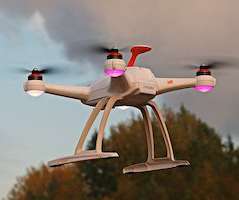The Green Corridor: Cures from the Sky! Healthcare Distribution is Driving Itself Into a More Environmentally Friendly Direction
The Logistics & Supply Chain Management Society
AUGUST 14, 2023
Amazingly their blood delivery drone operation in Rwanda distributes 70% of that nation’s blood. Additionally, the superior speed vs. ground transportation is unquestioned. Zipline’s fixed wing UAV delivery systems in Rwanda are moving at 100 kilometers per hour with no stop lights. It’s not all about blood either.
















Let's personalize your content